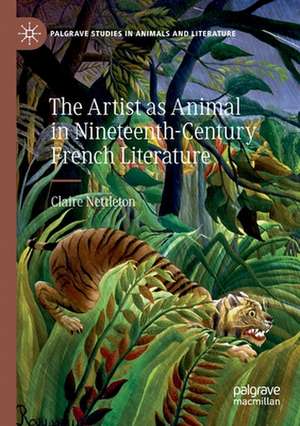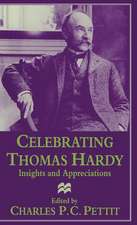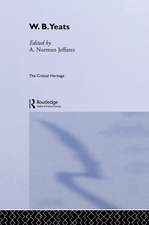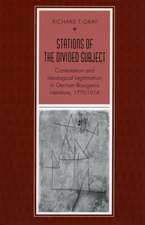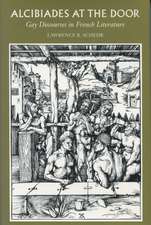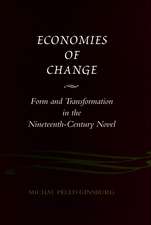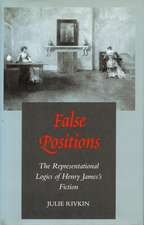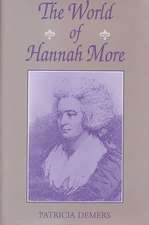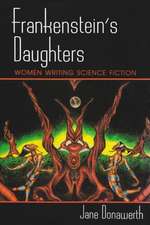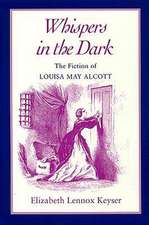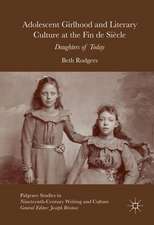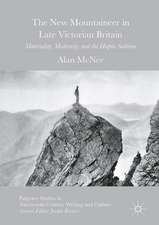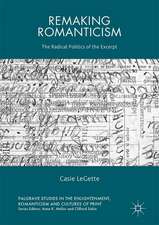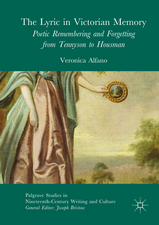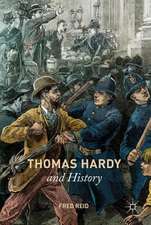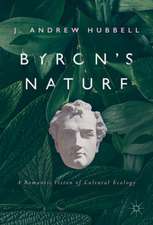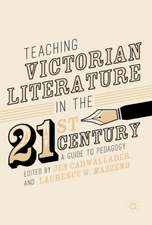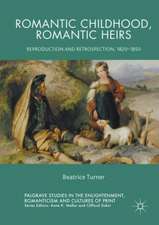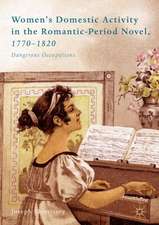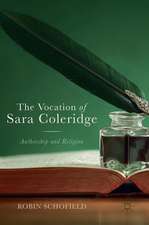The Artist as Animal in Nineteenth-Century French Literature: Palgrave Studies in Animals and Literature
Autor Claire Nettletonen Limba Engleză Paperback – 25 aug 2020
| Toate formatele și edițiile | Preț | Express |
|---|---|---|
| Paperback (1) | 383.50 lei 6-8 săpt. | |
| Springer International Publishing – 25 aug 2020 | 383.50 lei 6-8 săpt. | |
| Hardback (1) | 500.73 lei 6-8 săpt. | |
| Springer International Publishing – 24 aug 2019 | 500.73 lei 6-8 săpt. |
Din seria Palgrave Studies in Animals and Literature
- 18%
 Preț: 783.98 lei
Preț: 783.98 lei - 18%
 Preț: 893.21 lei
Preț: 893.21 lei - 18%
 Preț: 944.82 lei
Preț: 944.82 lei - 15%
 Preț: 696.02 lei
Preț: 696.02 lei - 18%
 Preț: 727.31 lei
Preț: 727.31 lei - 15%
 Preț: 589.51 lei
Preț: 589.51 lei - 18%
 Preț: 786.18 lei
Preț: 786.18 lei - 18%
 Preț: 785.42 lei
Preț: 785.42 lei - 18%
 Preț: 785.11 lei
Preț: 785.11 lei - 18%
 Preț: 724.17 lei
Preț: 724.17 lei - 15%
 Preț: 699.28 lei
Preț: 699.28 lei - 18%
 Preț: 779.08 lei
Preț: 779.08 lei - 15%
 Preț: 585.08 lei
Preț: 585.08 lei - 15%
 Preț: 525.99 lei
Preț: 525.99 lei - 15%
 Preț: 585.90 lei
Preț: 585.90 lei - 18%
 Preț: 784.48 lei
Preț: 784.48 lei - 18%
 Preț: 783.05 lei
Preț: 783.05 lei - 15%
 Preț: 526.35 lei
Preț: 526.35 lei - 18%
 Preț: 891.02 lei
Preț: 891.02 lei - 18%
 Preț: 784.13 lei
Preț: 784.13 lei - 15%
 Preț: 699.77 lei
Preț: 699.77 lei - 15%
 Preț: 586.88 lei
Preț: 586.88 lei - 18%
 Preț: 892.59 lei
Preț: 892.59 lei - 18%
 Preț: 1131.56 lei
Preț: 1131.56 lei - 15%
 Preț: 588.18 lei
Preț: 588.18 lei - 15%
 Preț: 576.06 lei
Preț: 576.06 lei - 15%
 Preț: 585.57 lei
Preț: 585.57 lei - 15%
 Preț: 694.22 lei
Preț: 694.22 lei - 18%
 Preț: 785.11 lei
Preț: 785.11 lei - 18%
 Preț: 899.21 lei
Preț: 899.21 lei - 18%
 Preț: 732.07 lei
Preț: 732.07 lei - 18%
 Preț: 897.14 lei
Preț: 897.14 lei - 18%
 Preț: 894.46 lei
Preț: 894.46 lei -
 Preț: 384.86 lei
Preț: 384.86 lei
Preț: 383.50 lei
Nou
Puncte Express: 575
Preț estimativ în valută:
73.39€ • 79.69$ • 61.65£
73.39€ • 79.69$ • 61.65£
Carte tipărită la comandă
Livrare economică 22 aprilie-06 mai
Preluare comenzi: 021 569.72.76
Specificații
ISBN-13: 9783030193478
ISBN-10: 3030193470
Pagini: 241
Ilustrații: XIV, 241 p. 14 illus.
Dimensiuni: 148 x 210 mm
Greutate: 0.31 kg
Ediția:1st ed. 2019
Editura: Springer International Publishing
Colecția Palgrave Macmillan
Seria Palgrave Studies in Animals and Literature
Locul publicării:Cham, Switzerland
ISBN-10: 3030193470
Pagini: 241
Ilustrații: XIV, 241 p. 14 illus.
Dimensiuni: 148 x 210 mm
Greutate: 0.31 kg
Ediția:1st ed. 2019
Editura: Springer International Publishing
Colecția Palgrave Macmillan
Seria Palgrave Studies in Animals and Literature
Locul publicării:Cham, Switzerland
Cuprins
1. Introduction.- Part I Behind Bars: Artists and Animals of the Second Empire.- 2. A Caged Animal: The Avant-garde Artist in Edmond and Jules de Goncourt’s Manette Salomon.- 3. Buffon Versus the Beast: Taming the Wild Artist in Émile Zola’s Thérèse Raquin.- Part II The Decadent Animals of the Third Republic.- 4. The Decadent Deep Sea: Jules Laforgue’s “At the Berlin Aquarium”.- 5. Said the Spider to the Fly: The Triumph of the Minor in Octave Mirbeau’s In the Sky.- 6. Félline-Fatale: The New Woman as Cat-Woman in Rachilde’s L’Animale.- 7. Conclusion: Henri Rousseau and Synthetic Naïveté.
Notă biografică
Claire Nettleton is Visiting Assistant Professor of French at Pomona College, USA, and editor of Viral Culture: How CRISPR Gene Editing and the Microbiome Transform Humanity and the Humanities (2020), based on a colloquium she organized, and writer of multiple articles and essays on the intersection of animal studies, the history of science, visual art and avant-garde fiction.
Textul de pe ultima copertă
The Artist as Animal in Nineteenth-Century French Literature traces the evolution of the relationship between artists and animals in fiction from the Second Empire to the fin de siècle. This book examines examples of visual literature, inspired by the struggles of artists such as Edouard Manet and Vincent van Gogh. Edmond and Jules de Goncourt’s Manette Salomon (1867), Émile Zola’s Therèse Raquin (1867), Jules Laforgue’s “At the Berlin Aquarium” (1895) and “Impressionism” (1883), Octave Mirbeau’s In the Sky (1892-1893) and Rachilde’s L’Animale (1893) depict vanguard painters and performers as being like animals, whose unique vision revolted against stifling traditions. Juxtaposing these literary works with contemporary animal theory (McHugh, Deleuze, Guattari and Derrida), zoo studies (Berger, Rothfels and Lippit) and feminism (Donovan, Adams and Haraway), Claire Nettleton explores the extent to which the nineteenth-century dissolution of the human subject contributed to a radical, modern aesthetic. Utilizing these interdisciplinary methodologies, Nettleton argues that while inducing anxiety regarding traditional humanist structures, the “artist-animal,” an embodiment of artistic liberation within an urban setting, is, at the same time, a paradigmatic trope of modernity.
Caracteristici
Highlights the French literary contribution to animal studies Incorporates scholarship of French literature, animal studies, and visual culture Examines the impact of Darwin’s theory of evolution on literature
